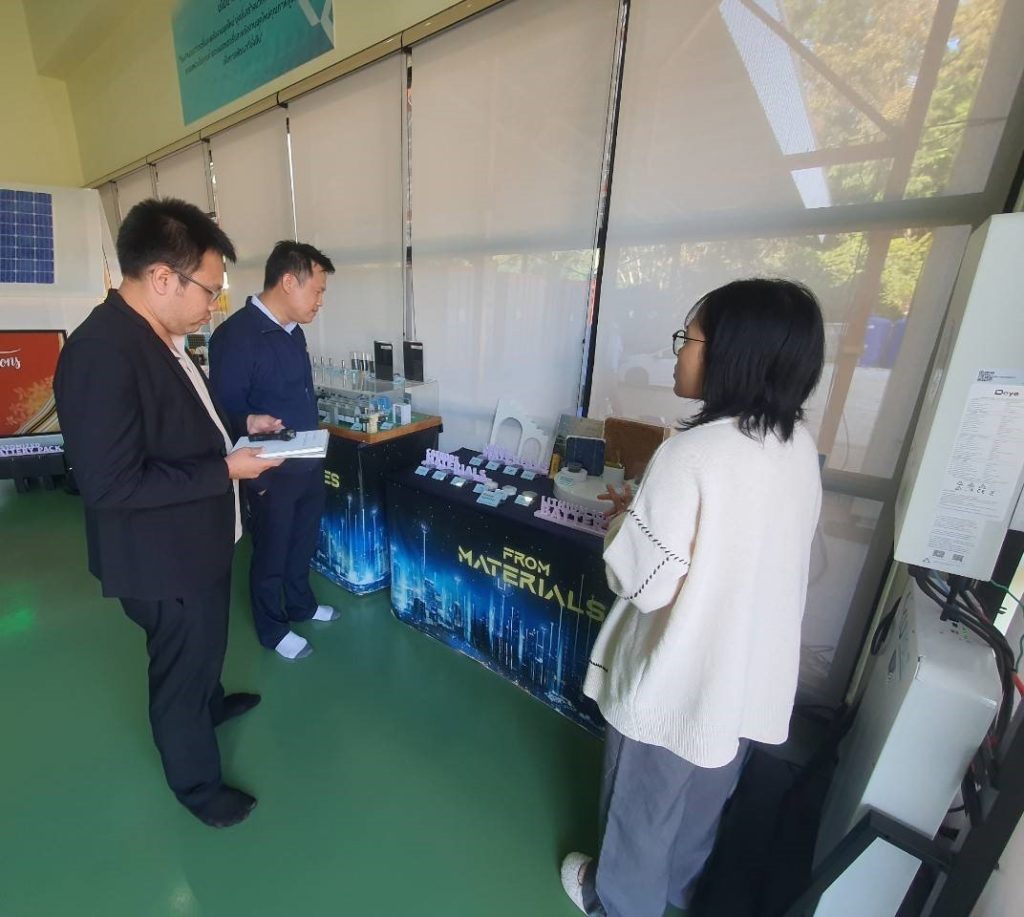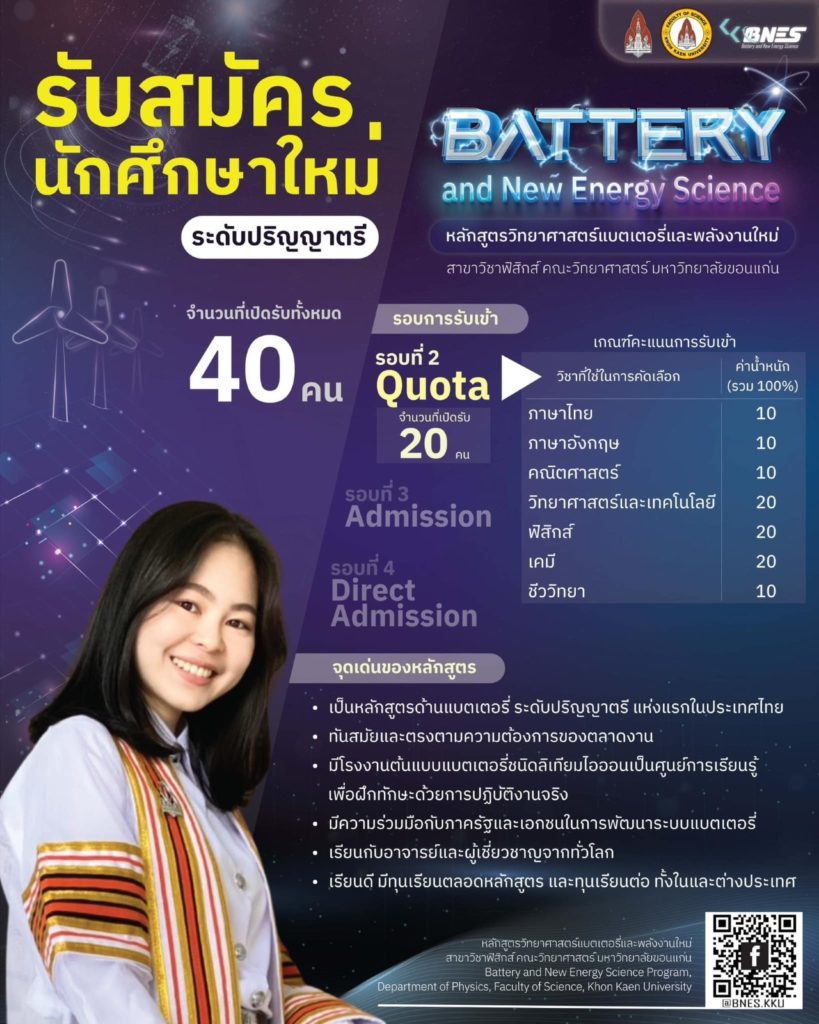
On 5 January 2024, a delegation comprising representatives from NXPO and various organizations, including Dr.Thanakarn Wongdeethai, Strategist at NXPO and Mr.Pariphat Buranasin, Vice President of the Electric Vehicle Conversion Association of Thailand (ECAT), visited a Sodium-ion battery factory at Khon Kaen University. It is the first plant in Thailand that produces Sodium-ion batteries from rock salt.
The group met with Assoc. Prof. Dr.Nonglak Meethong, Director of Battery and New Energy Science and Technology Factory at Khon Kaen University who extended a warm welcome and presented the Lithium-ion battery and Sodium-ion battery manufacturing technologies developed and implemented by the factory. The factory has developed commercial production of Lithium-ion batteries made from silicon nanoparticles prepared from rice husk and recycled solar panels, as well as Sodium-ion batteries made from rock salt, with the goal of positioning Thailand as a leader in battery manufacturing industry and a key player in the global battery and new energy supply chain.


The Sodium-ion battery is one of alternative batteries used for various energy storage applications in Thailand, presenting enormous opportunities for manufacturing technology and solution development for domestic and export markets in Thailand. The battery cell consists of four main components: 1) anode and cathode, 2) electrolyte, 3) separator, and 4) current collector, and uses Sodium compounds as the main raw material. Sodium compounds are more cost-effective compared to Lithium compounds and are abundantly available in Thailand. Compared to Lithium-ion batteries, Sodium-ion batteries offer faster charging times, higher stability, better safety under wide temperature conditions, and eco-friendliness. Nevertheless, they are heavier due to a lower gravimetric energy density, which means the can store less energy given the same battery weight. Based on these pros and cons, Sodium-ion batteries are suitable for applications unencumbered by weight and size, such as renewable energy, data centers and transmitter stations. However, the production of Sodium-ion batteries still has several technological challenges, including low energy density and control of desired voltage range, along with the need for trained personnel with knowledge, expertise, and experience in both quantity and quality to safely design and perform research as well as implement technologies.

Recognizing these challenges, Assoc. Prof. Dr.Nonglak Meethong has initiated several courses related to battery production. Over a year ago, the university introduced a 4-year Bachelor’s Programme in Battery and New Energy, the first of its kind in Thailand, under the Physics Department of the Faculty of Science at Khon Kaen University. The program emphasizes interdisciplinary education, covering materials science, science, technology, engineering, and economic aspects throughout the value chain of the battery industry. Forty graduates are expected annually, contributing to the advancement and competitiveness of Thailand’s battery industry.




Due to the increasing domestic demand for batteries and the rapid development of battery technologies globally, Thai education and research sectors need comprehensive support from government in various aspects, including equipment and infrastructure for research and scale-up, knowledge and technology exchange, and foreign experts. Both tax and non-tax incentives are necessary to promote research & development and talent development, enriching the battery industry ecosystem in Thailand. Government agencies are strongly encouraged to introduce support measures to boost this important industry to become a new S-curve industry, enabling the country to seize opportunities and compete in the global market.






